Risk Shifting in Financial Markets and Sustainable Finance
Do financial institutions facilitate sustainable finance? This research group studies lenders' risk shifting incentives, their choices in supporting sustainable business, and how sustainable finance and legal innovations affect firms and households.
Research Cluster
Financial Resilience and RegulationYour contact

Mitglied - Department Financial Markets
Refereed Publications
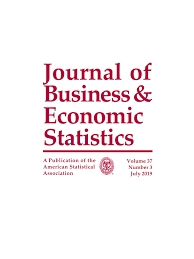
Too Connected to Fail? Inferring Network Ties from Price Co-movements
in: Journal of Business and Economic Statistics, No. 1, 2019
Abstract
We use extreme value theory methods to infer conventionally unobservable connections between financial institutions from joint extreme movements in credit default swap spreads and equity returns. Estimated pairwise co-crash probabilities identify significant connections among up to 186 financial institutions prior to the crisis of 2007/2008. Financial institutions that were very central prior to the crisis were more likely to be bailed out during the crisis or receive the status of systemically important institutions. This result remains intact also after controlling for indicators of too-big-to-fail concerns, systemic, systematic, and idiosyncratic risks. Both credit default swap (CDS)-based and equity-based connections are significant predictors of bailouts. Supplementary materials for this article are available online.
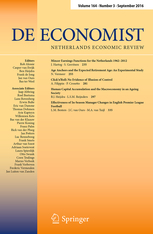
Legal Insider Trading and Stock Market Liquidity
in: De Economist, No. 1, 2016
Abstract
This paper assesses the impact of legal trades by corporate insiders on the liquidity of the firm’s stock. For this purpose, we analyze two liquidity measures and one information asymmetry measure. The analysis allows us to study as well the effect of a change in insider trading regulation, namely the implementation of the Market Abuse Directive (European Union Directive 2003/6/EC) on the Dutch stock market. The first set of results shows that, in accordance with theories of asymmetric information, the intensity of legal insider trading in a given company is positively related to the bid-ask spread and to the information asymmetry measure. We also find that the Market Abuse Directive did not reduce significantly this effect. Secondly, analyzing liquidity and information asymmetry around the days of legal insider trading, we find that small and large capitalization stocks see their bid-ask spread and the permanent price impact increase when insiders trade. For mid-cap stocks, only the permanent price impact increases. Finally, we could not detect a significant improvement of these results following the change in regulation.
Working Papers
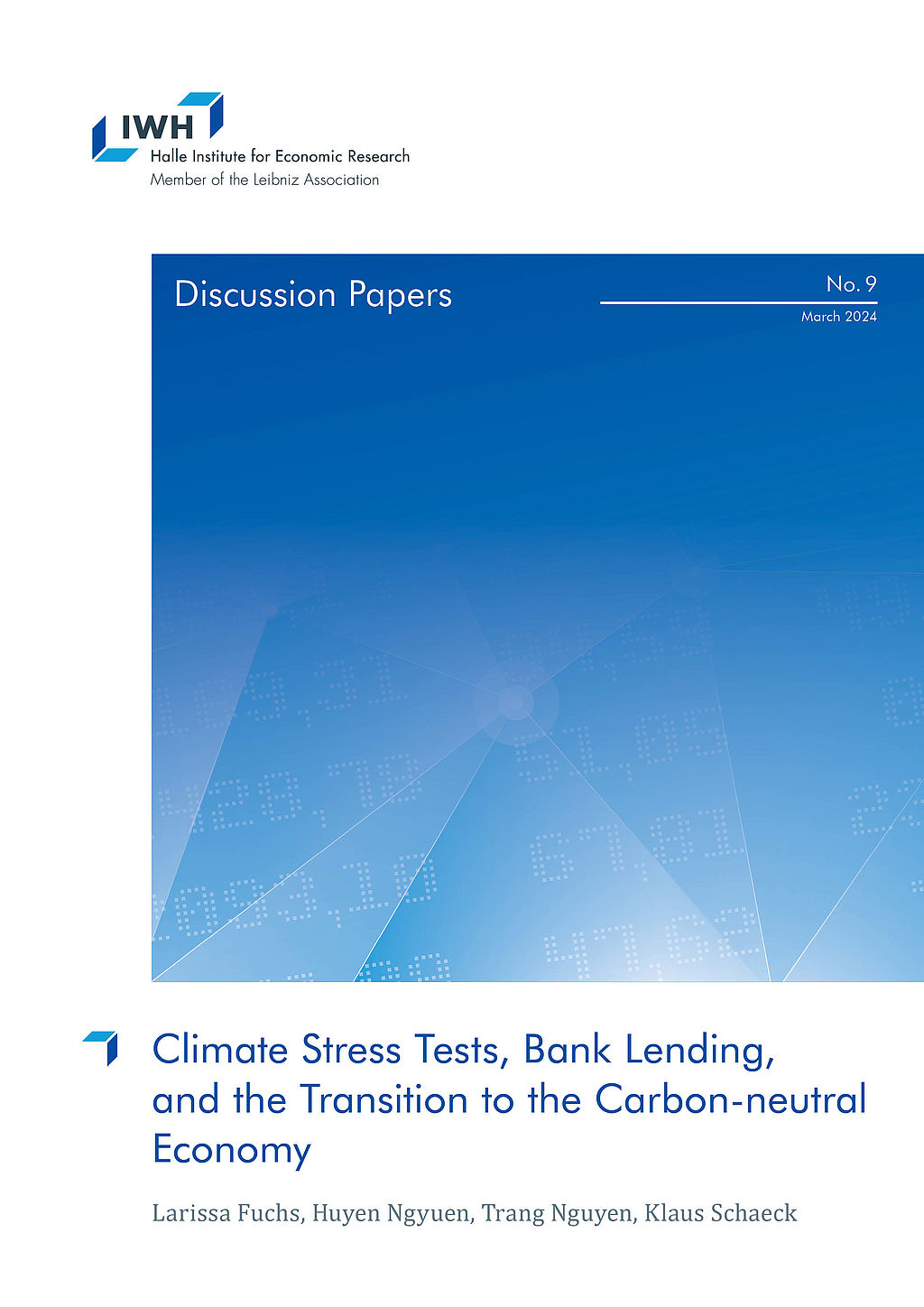
Climate Stress Tests, Bank Lending, and the Transition to the Carbon-neutral Economy
in: IWH Discussion Papers, No. 9, 2024
Abstract
Does banking supervision affect borrowers‘ transition to the carbon-neutral economy? We use a unique identification strategy that combines the French bank climate pilot exercise with borrowers‘ carbon emissions to present two novel findings. First, climate stress tests actively facilitate borrowers‘ transition to a low-carbon economy through a lending channel. Stress-tested banks increase loan volumes but simultaneously charge higher interest rates for brown borrowers. Second, additional lending is associated with some improvements in environmental performance. While borrowers commit more to reduce carbon emissions and are more likely to evaluate environmental effects of their projects, they neither reduce direct carbon emissions, nor terminate relationships with environmentally unfriendly suppliers. Our findings establish a causal link between bank climate stress tests and borrowers‘ reductions in transition risk.
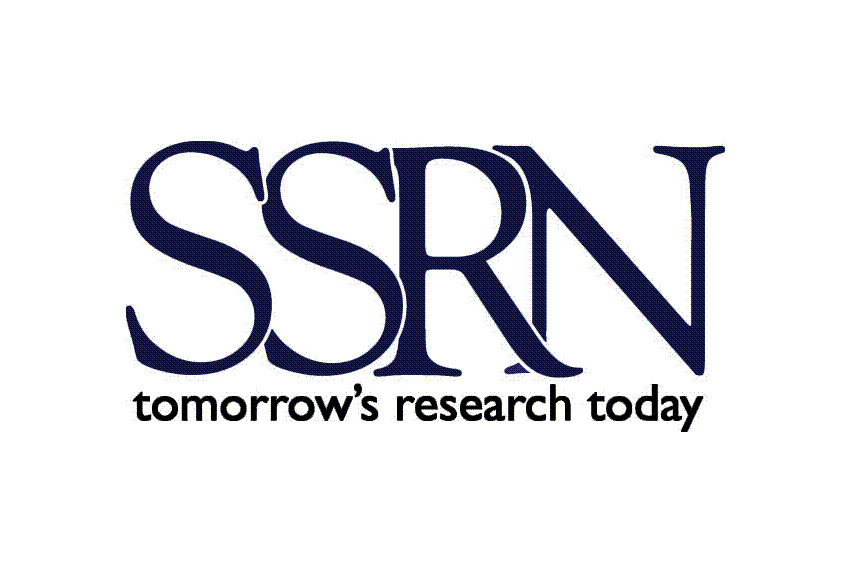
Climate Stress Tests, Bank Lending, and the Transition to the Carbon-Neutral Economy
in: SSRN Working Papers, No. 4427729, 2023
Abstract
Does banking supervision affect borrowers’ transition to the carbon-neutral economy? We use a unique identification strategy that combines the French bank climate pilot exercise with borrowers’ carbon emissions to present two novel findings. First, climate stress tests actively facilitate borrowers’ transition to a low-carbon economy through a lending channel. Stress-tested banks increase loan volumes but simultaneously charge higher interest rates for brown borrowers. Second, additional lending is associated with some improvements in environmental performance. While borrowers commit more to reduce carbon emissions and are more likely to evaluate environmental effects of their projects, they neither reduce direct carbon emissions, nor terminate relationships with environmentally unfriendly suppliers. Our findings establish a causal link between bank climate stress tests and borrowers’ reductions in transition risk.
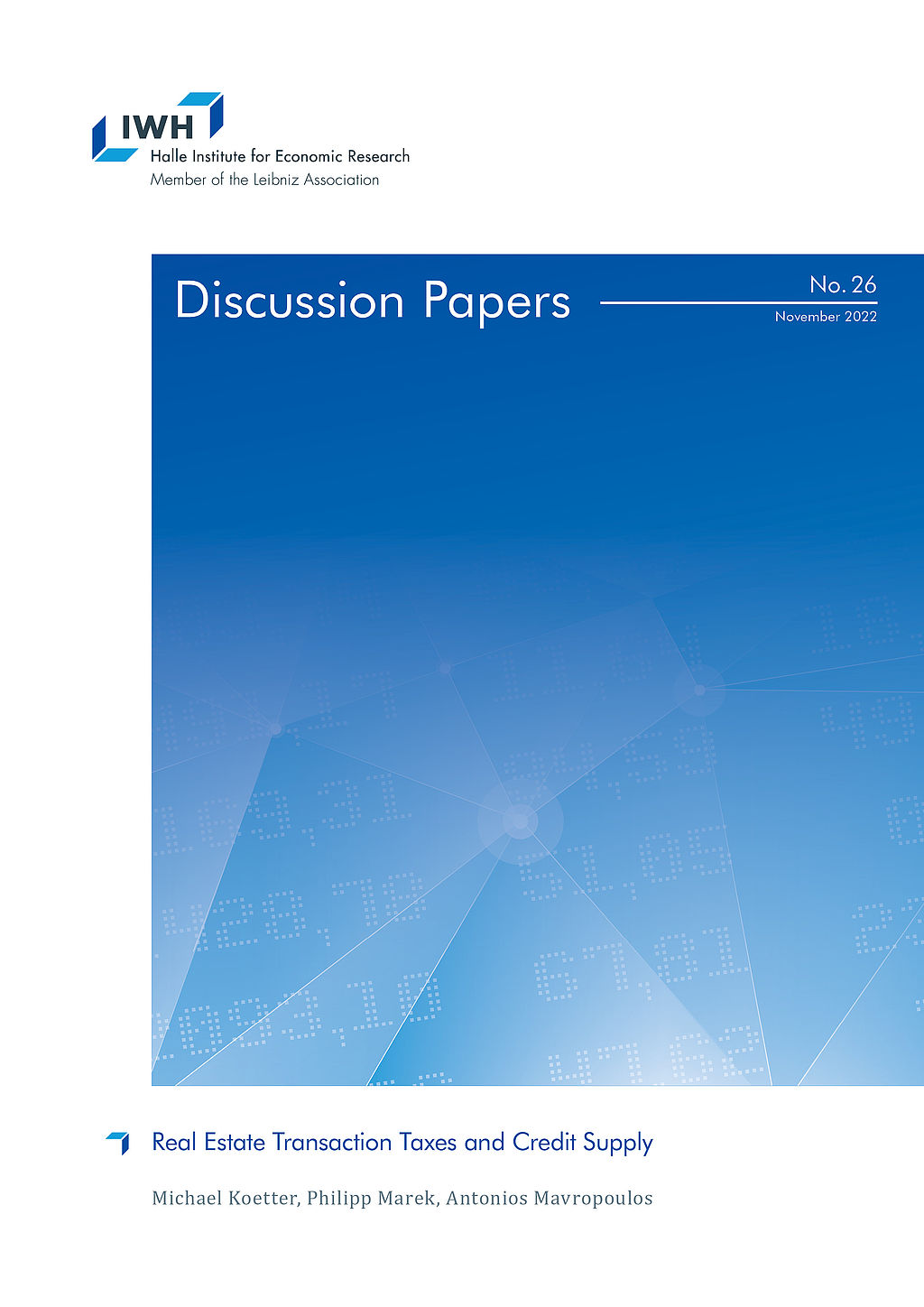
Real Estate Transaction Taxes and Credit Supply
in: IWH Discussion Papers, No. 26, 2022
Abstract
We exploit staggered real estate transaction tax (RETT) hikes across German states to identify the effect of house price changes on mortgage credit supply. Based on approximately 33 million real estate online listings, we construct a quarterly hedonic house price index (HPI) between 2008:q1 and 2017:q4, which we instrument with state-specific RETT changes to isolate the effect on mortgage credit supply by all local German banks. First, a RETT hike by one percentage point reduces HPI by 1.2%. This effect is driven by listings in rural regions. Second, a 1% contraction of HPI induced by an increase in the RETT leads to a 1.4% decline in mortgage lending. This transmission of fiscal policy to mortgage credit supply is effective across almost the entire bank capitalization distribution.
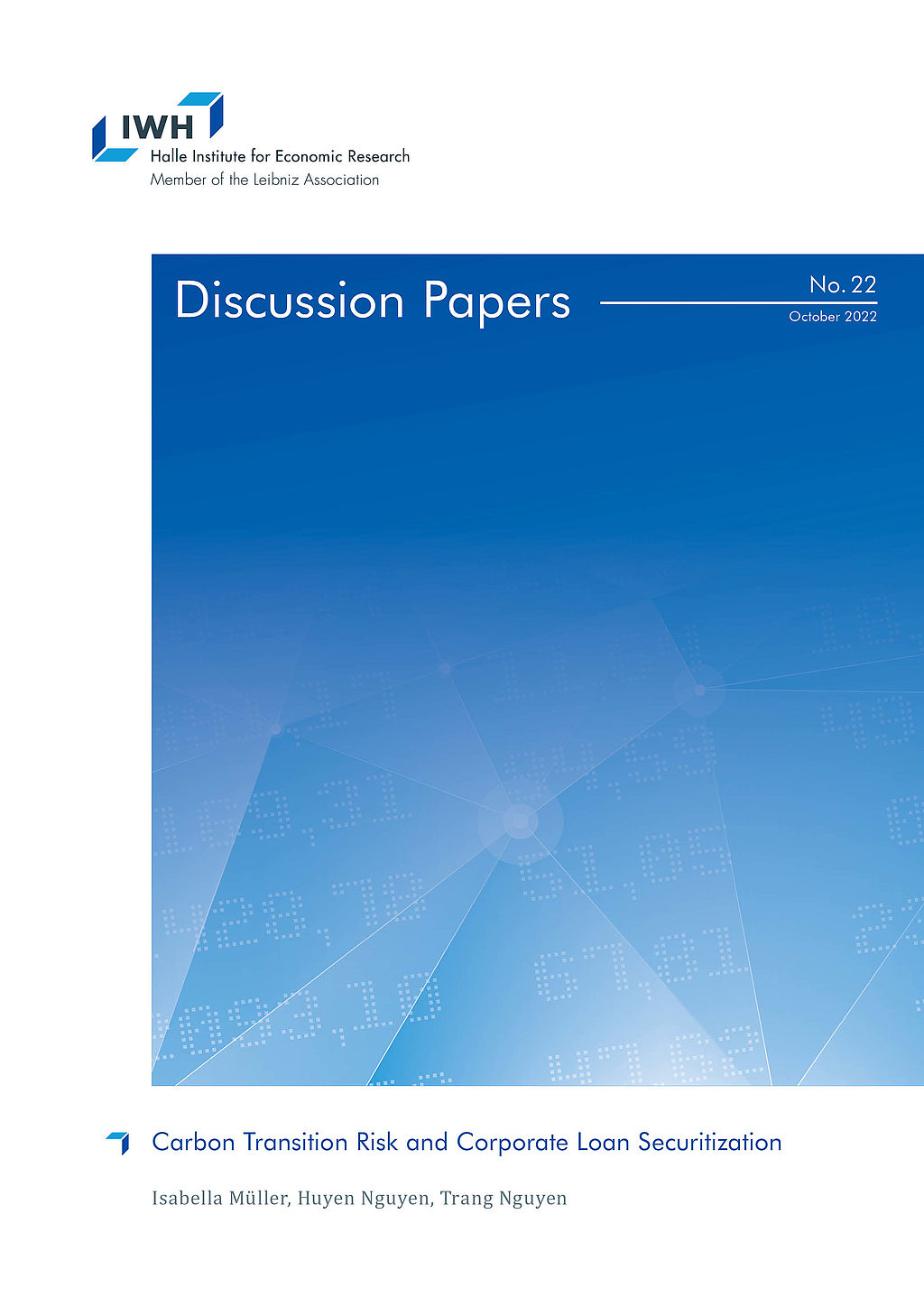
Carbon Transition Risk and Corporate Loan Securitization
in: IWH Discussion Papers, No. 22, 2022
Abstract
We examine how banks manage carbon transition risk by selling loans given to polluting borrowers to less regulated shadow banks in securitization markets. Exploiting the election of Donald Trump as an exogenous shock that reduces carbon risk, we find that banks’ securitization decisions are sensitive to borrowers’ carbon footprints. Banks are more likely to securitize brown loans when carbon risk is high but swiftly change to keep these loans on their balance sheets when carbon risk is reduced after Trump’s election. Importantly, securitization enables banks to offer lower interest rates to polluting borrowers but does not affect the supply of green loans. Our findings are more pronounced among domestic banks and banks that do not display green lending preferences. We discuss how securitization can weaken the effectiveness of bank climate policies through reducing banks’ incentives to price carbon risk.
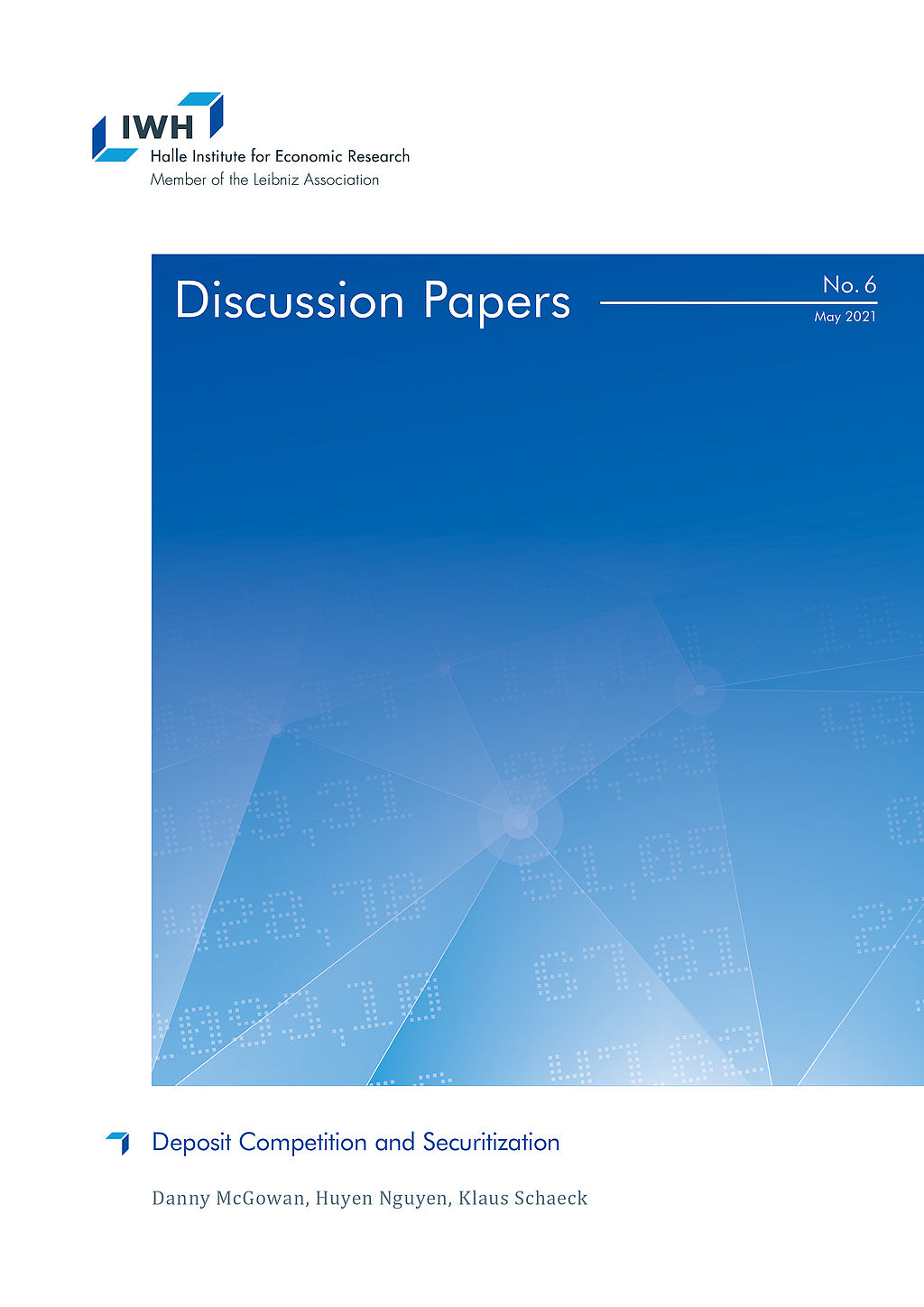
Deposit Competition and Securitization
in: IWH Discussion Papers, No. 6, 2021
Abstract
We provide novel evidence that deposit competition incentivizes banks to securitize loans. Exploiting the state-specific removal of deposit market caps across the U.S. as an exogenous source of competition, we document a 7.1 percentage point increase in the probability that banks securitize their assets. This result is driven by an 11 basis point increase in costs of deposits and a corresponding decrease in banks’ deposit growth. Our results are strongest among small and single state incumbent banks that rely more on deposit funding. These findings highlight an unintended regulatory cause that motivates banks to adopt the originate-to-distribute model.







